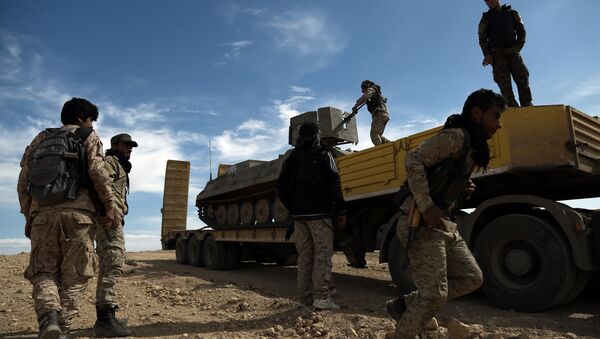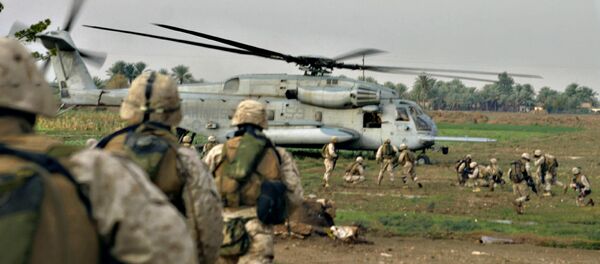"The United States has efficiently played the Kurdish card," Deputy Chairman of Russia's Federation Council Committee on International Affairs Andrei Klimov told Izvestiya. "Washington has actively increased its presence [in Syria]. Under these circumstances, there are risks that the issue of dividing Syria into several so-called sovereign states will return to the agenda since the support of a single ethnic group could lead to negative implications."
The fact that the US-backed Syrian Democratic Forces, a multi-ethnic alliance primarily made up of the Kurdish People's Protection Units, has become the key force tasked with liberating the city of Raqqa, Daesh's key stronghold in the Middle East, has prompted some to suggest that Washington had promised the Kurds that the US will back them during post-conflict reconstruction of the war-torn country.
"There is no military need for the Kurds to capture [Raqqa]," the source said. "The sheer fact that they have advanced [towards the city] shows that they received guarantees that they will have an opportunity to assert their rights" during the peace process. These guarantees were ostensibly provided by external forces, apparently meaning the United States.
This is not something that Damascus will take lightly. Syrian President Bashar al-Assad named liberating Raqqa a priority for the Syrian Arab Army (SAA) over the weekend. However, turning this into an actual strategy will be difficult.
Damascus-led forces "will need to cross the Euphrates in order to advance towards Raqqa. The US-backed SDF are active on the bank the SAA moved to. The Kurds have reached the left bank of the Euphrates, south of Raqqa. In other words, they have cut the direct route between the city and Deir ez-Zor. Government forces need to reach an agreement with the SDF if they want to move towards Raqqa," he explained, adding that it is highly unlikely that both sides will ink such a deal.
Never miss a story again — sign up to our Telegram channel and we'll keep you up to speed!




